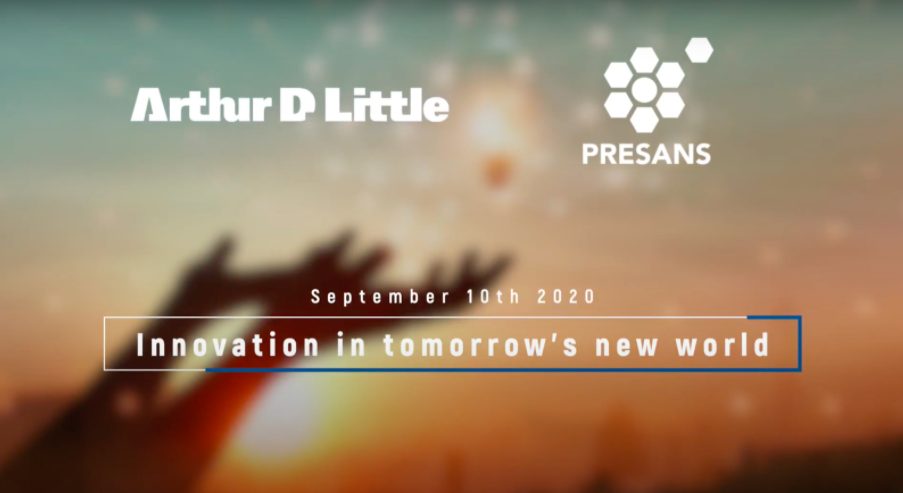Our webinar of September 10th focused on the impact of Covid-19 on industrial innovation, giving the floor to two actors located in the heart of the aerospace sector:
- Sabine Klauke, Head of Engineering at Airbus Defence & Space;
- Hervé Gilibert, CTO of ArianeGroup
Vincent Bamberger, Managing Partner of Arthur D. Little, and Albert Meige, founder of Presans, led the webinar, which addressed the most pressing issues facing players in industrial innovation in the aftermath of the COVID-19 crisis:
– How should innovation contribute to the recovery phase?
– The impact of the crisis on the geographic footprint of R&I;
– The negative impact on disruptive innovation;
– The technologies that the crisis has made indispensable.
Webinar Guide
00:00: Presentation of the results of the survey conducted by Arthur D. Little: impact of Covid-19 on the R&I function and its organization, on the industrial innovation agenda, the role of innovation in the crisis, rationalization of the agenda
05:01: Technologies highlighted during the crisis: what will be the role of R&I in the recovery phase?
07:48: Actions to keep companies alive, and to put expertise and know-how at the service of society; cost reduction; the distinction between R&T and R&D; hydrogen.
24:10: Importance of efficiency, empowerment, and trust.
33:10: Accelerating the pace of digital transformation: end-to-end digital design manufacturing and service and digital sovereignty.
37:23: Geographic footprint of Airbus and ArianeSpace R&I.
43:45: Impact on disruptive innovation: risks weighing on startups; public support on the themes of hydrogen, the air combat system of the future, the secure cloud, mini-satellite constellations.
58:47: Important technologies highlighted by the crisis.
Four takeaways
- Large structures like Airbus and ArianeSpace have shown their responsiveness and agility in dealing with this crisis, by developing their ability to set priorities and boosting their selection decision-making processes.
- Certain trends (digital transformation, working methods, energy transition) have accelerated. The notions of empowerment and trust play a key role in scaling these trends.
- Globalization and disruptive innovation are not dead, thanks in particular to the support provided by governments.
- Sustainability and European sovereignty are more than ever in the air. Notably through new energy carriers such as hydrogen, and the deployment of new satellite systems.


